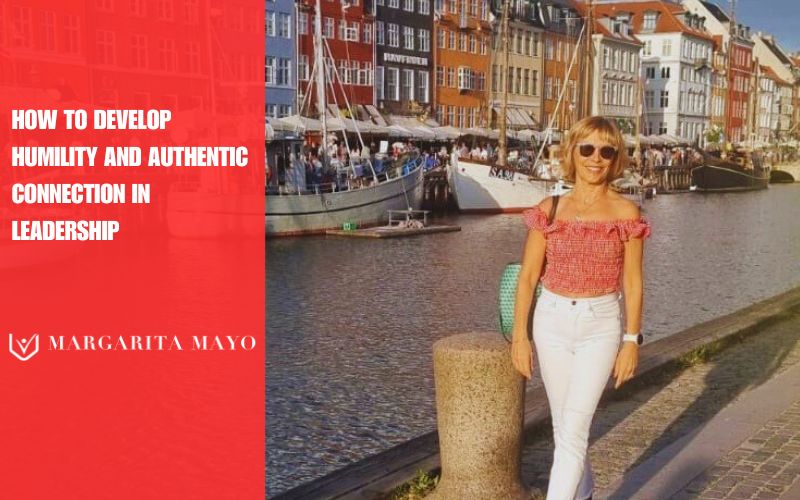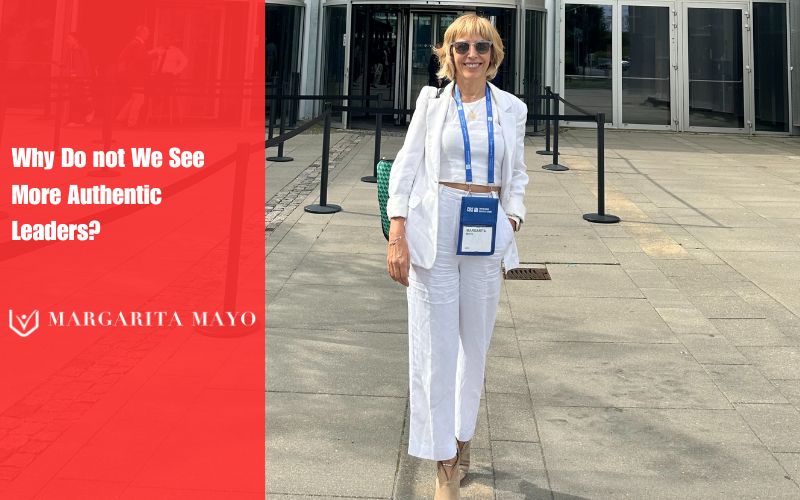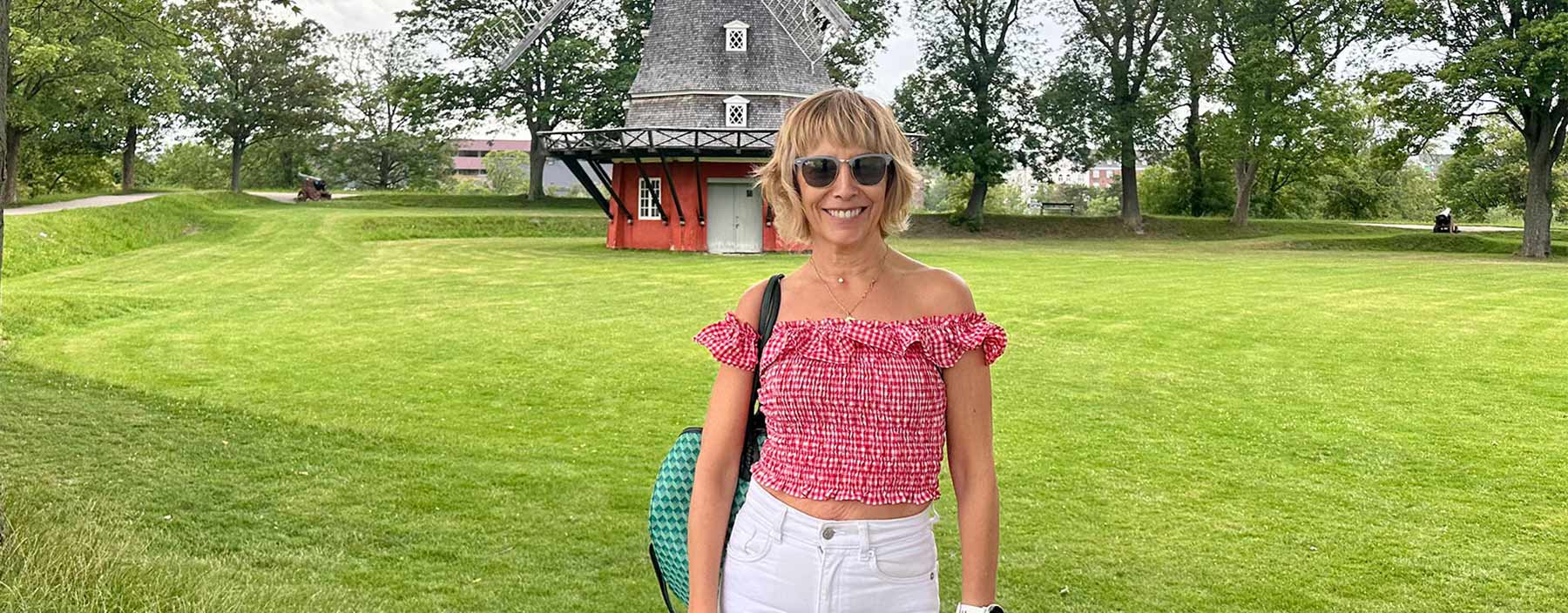Introduction

We know what kind of leadership works. The science is clear: authentic leadership—grounded in humility and human connection—is what drives high-performing teams, trust, and sustainable success. The real question for today’s executives and managers is this:
How do we develop authentic leadership in practice?
This summer, I had the honor of closing the Communication, Strategy and Executive Coaching management programs at IE University with a Master Class on “Leading with Trust: The Power of Authentic Leadership.”
I also had the privilege of leading a roundtable at the Academy of Management Meetings in Copenhagen. Some scholars and practitioners got together to tackle this problem with doctoral students interested in leadership. I opened the session with a simple but revealing question that I’ve asked thousands of executives, professionals, and MBA students over the past 25 years:
“What does a great leader look like to you?”
The most common responses are:
Charismatic. Confident. Visionary.
Rarely do people say humble. And yet, the science tells us something different.
The Paradox of Leadership
The most effective leaders are not necessarily the most charismatic—they’re the most humble. In my Harvad Business Review article discuss why humble people make better leaders in detail.
Humility is often misunderstood as weakness. But in fact, it’s the foundation of trust. And trust is what makes leadership possible.
Thanks to advances in neuroscience, we now know that when a leader shows authenticity, empathy, and honesty, the brain activates pathways associated with psychological safety—specifically in the medial prefrontal cortex, the area responsible for social connection and empathy.
When people feel safe, they perform better. They take reasonable risks. They collaborate. They innovate. In short, humility is not a weakness, but it’s a performance driver.
The Neuroscience of Purpose
Leadership isn’t about control. It’s about connection and meaning for the work we do as a team.
Studies in neuroimaging show that people with a strong sense of purpose exhibit unique patterns of brain activation. Acting in alignment with one’s values releases dopamine, which boosts intrinsic motivation and resilience. Purpose literally energizes the brain—and lowers cortisol levels, reducing stress and enhancing well-being.
Teams that are connected by a shared purpose even show neural synchrony—their brains literally align. That’s what drives team cohesion, faster learning, and better performance.
I’ve seen this firsthand in executive teams I’ve worked with. When a leader starts speaking about the purpose—not just data and strategy—it changes the emotional climate in the room. People listen and remember more. They get inspired to stay connected.
Why Do not We See More Authentic Leaders?

So if the science is clear, why aren’t more leaders like this?
Because we keep selecting the wrong ones. We choose leaders for their charisma, how confident they appear, how well they sell—not how well they connect with others.
In my article for Harvard Business Review and in my book Yours Truly: Staying Authentic in Leadership & Life (Confianza in Spanish), I show how this bias leads to the rise of egocentric, sometimes narcissistic leaders.
People Do not Leave Company, They Leave Bad Bosses
What is the cost?
Toxic cultures. Burnout. High turnover. Anxiety. And a deep erosion of trust. We live in the era of the Great Resignation and Quite Quitting. More than 45% of employees leave a company because of a bad boss.
We don’t just need a new leadership model. We need a new mindset to lead people and teams. One that put people at the center, —not the ego.
Organizations must evolve from cultures short-term performance-centered to people-centered ecosystems. The competitive edge no longer lies in managing tasks but in mobilizing hearts and minds around a common purpose for collective success.
A Human-Centered Approach to Coaching Leaders
In my coaching practice, I use a humanistic approach grounded in Carl Rogers’ principles of empathy, authenticity, and positive regard. Combined with my research-based framework from Yours Truly, I’ve helped hundreds of executives lead with more humility, courage, and impact.
When people feel truly seen and valued, they begin to drop their defensiveness. They open up to feedback and learning. They connect with their teams on a human level. That’s when transformation happens—not just in everyone, but across the entire organization.
The 3H Model of Authentic Leadership
This is my evidence-based model for developing authentic leadership:
-
Heart – Be True to Yourself
- Know your strengths, your limits, and your values. That’s humility.
- Share your story—not to impress, but to connect.
- Lead with positive energy. Emotions are contagious. Your team feels what you feel.
-
Habit – Be True to Your Best Self
- Embrace a growth mindset. Change your small habits to achieve big results.
- Stay open to feedback. Ego is the biggest barrier.
- Build resilience. Setbacks are inevitable, but learning is the right choice.
-
Harmony – Be True to Others
- Coach others to grow. Leadership is a team sport.
- Create a sense of community. Mobilize people around shared values.
- Leave a legacy. What will people remember when you’re not present?
Practical Tools You Can Use
If you’re wondering where to start, try this simple practice:
- Weekly Reflection: Ask yourself every Friday—”Where was I most authentic this week? Where did I hold back?” Write down your answers. Self-awareness is the first step to personal and professional growth.
- Feedback Opportunities: Create a culture of open feedback. Make it easy and safe for your team to tell you what they really think—not just what they think you want to hear.
- Purpose Reminders: Start your team meetings with a one-sentence reminder of your shared purpose. It realigns focus and builds emotional connection.
These may sound simple, but they have a big impact. Over time, they help rewire not only behaviors but also beliefs. Leaders engage not just in single-loop, but double-loop learning.
The Bottom Line
Leadership is not about having all the answers and being the smartest person in the room. It’s about being the real, ask questions and involve others.
Authentic leaders create spaces where others feel safe to contribute, grow, and lead in their own way. That’s what today’s organizations need more than ever: less ego and more empathy.
If you’re an executive or team leader looking to improve your impact, I offer keynotes and coaching grounded in scientific research, real-world experience, and a human perspective.
Let’s stop falling for heroic leaders. And start developing authentic ones.
📩 You can reach out to me directly through the form, and I’ll help you take that first step with scientific evidence, experience, and purpose
ABOUT ME

PhD in Management Psychology from the State University of New York (Buffalo), Fulbright Scholar at Harvard University, Master’s in Psychology from Clark University, and Professor at IE University. International speaker and award-winning author, passionate about transforming leaders and organizations through authenticity, well-being, and positive change. Author of Yours Truly.
You can contact me directly through the form for conferences, executive coaching, and workshops, and I’ll help you take that first step—with scientific evidence, experience, and purpose.

